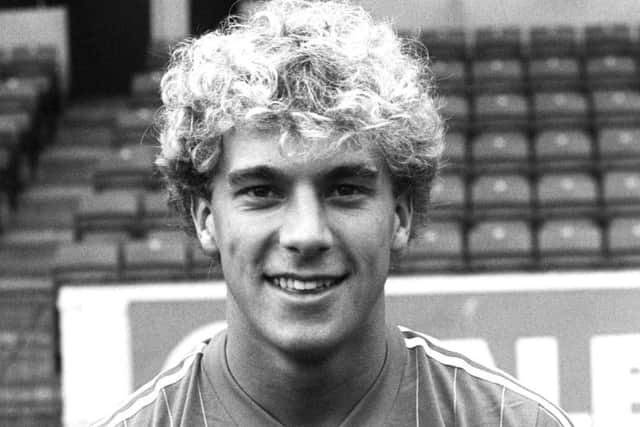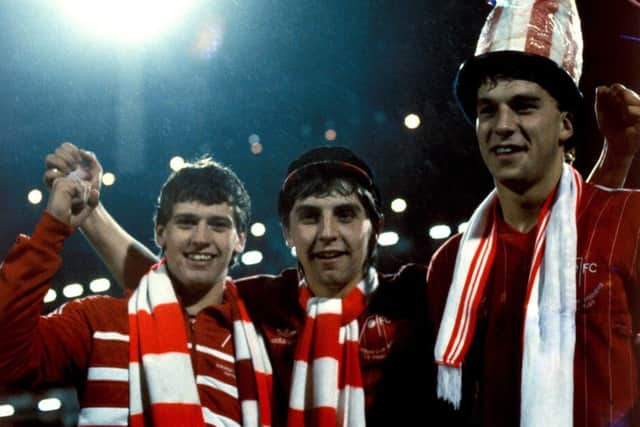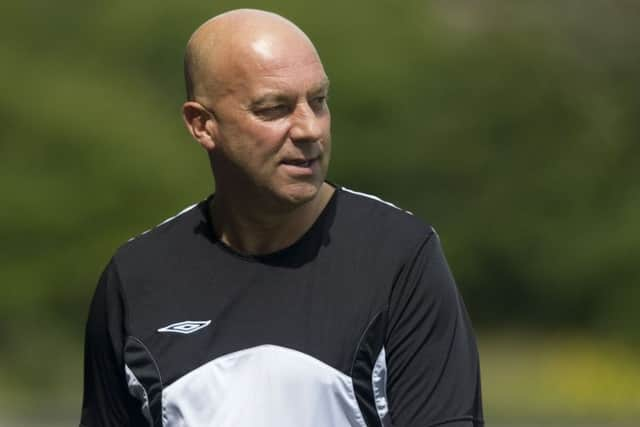Neale Cooper: Farewell to one of football's true greats
It is a painful reminder of life’s often unfathomable vagaries that he should be the first of that iconic squad, revered as the Gothenburg greatsby Dons supporters, to pass away.
Cooper’s death at the age of 54 has stunned not only all of those connected with the Pittodrie club but many in the rest of the Scottish football community and beyond who came to admire a fine footballer and endearing human being.
Advertisement
Hide AdAdvertisement
Hide AdA teenage prodigy who flourished under Alex Ferguson’s peerless management during the greatest era in Aberdeen’s history, Cooper combined an unflinching physical presence with a technical ability which was far greater that he was often given credit for.


He also, more often than not, played with a smile on his face. It mirrored his approach to life itself, an appreciation of the moment at hand perhaps shaped by his father’s death at the age of only 39.
Cooper, born in Darjeeling in India where his dad managed a tea plantation, was raised in the Airyhall district of Aberdeen. He joined the Dons directly from Hazlehead Academy and was quickly identified by Ferguson as a player of genuine substance.
He seemed best suited to a role in central defence but that simply wasn’t an option at a time when Aberdeen had the outstanding pairing of Willie Miller and Alex McLeish in that department. Cooper became a holding midfielder, operating it to such good effect during his time with the Dons that German icon Franz Beckenbauer was once moved to comment he had rarely seen anyone do it better.
In 245 appearances for Aberdeen over six seasons, scoring ten goals, Cooper won every major domestic honour – two league titles, four Scottish Cups and one League Cup. The icing on the cake, of course, was the Gothenburg triumph against Real Madrid as he helped the Dons overcome Europe’s most storied club 2-1 in extra time.


His success at Aberdeen would come at a physical cost as injuries blighted the rest of his career after his departure to Aston Villa in 1986. Cooper was later to observe, albeit without a hint of bitterness, that he and other younger players were “overplayed” by Ferguson.
His unfulfilling stint at Villa was ended in surprising fashion when Rangers, under Graeme Souness, signed him in October 1988. Fate decreed that his debut was at Pittodrie, where he scored for his new club on an infamous day in which Ian Durrant was badly injured in a tackle by Neil Simpson.
“I don’t talk about what happened,” Cooper reflected in an interview with Aidan Smith on these pages in 2016. “There was an atmosphere that day and I know me changing sides was part of it. It was a hard game. Both guys suffered massively. They’re my friends and I’m really close to the two of them. Ian’s a great pal, one of the best I’ve played with, such a wonderful guy. Simmy was my playing partner and is a long-time friend. That wasn’t a nice day for anyone.”
Advertisement
Hide AdAdvertisement
Hide AdCooper won a League Cup medal with Rangers only two weeks later, irony again a factor as they beat the Dons 3-2 in a Hampden classic. But he made only 20 appearances in total for the Ibrox club before a return to Aberdeen where he was unable to play because of injuries. Spells with Reading, Dunfermline – where he was a First Division winner in 1996 – and Ross County completed his playing career.


Cooper moved into management where he sparked Ross County’s remarkable rise through the ranks of Scottish football, overseeing back-to-back promotions in 1999 and 2000, before taking charge of Hartlepool United, Gillingham and Peterhead with varying degrees of success. He was also an accomplished and hugely entertaining after-dinner speaker, reflecting his always engaging personality, the absence of which leaves a void felt in Aberdeen and beyond today.